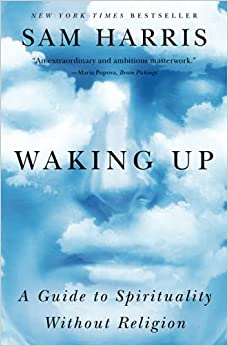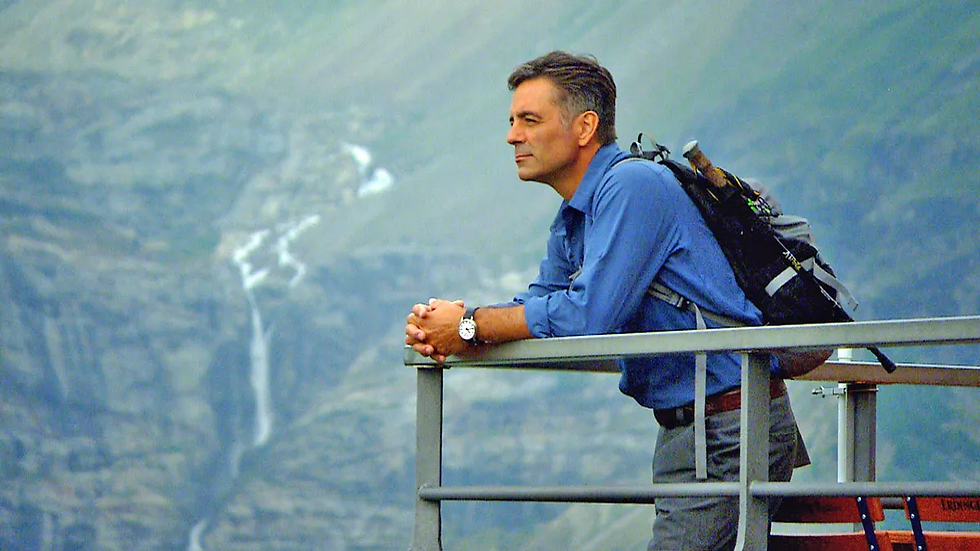Travel Without the Drama: How to Be Here Now When That Here is Hell
- Jeff Wilson
- Jun 29, 2022
- 7 min read
Nothing can get your blood boiling like a snag in your travel plans. There you are, poised to get away from it all, and suddenly “it all” piles up in front of you. Nope. You’re not going there today.
How many times have you seen perfectly sane, decent adults become screaming, belligerent toddlers in the face of a canceled flight or a misplaced hotel reservation? Or have been sincerely embarrassed for the guy who, sputtering and red-faced, berates the gate agent until he’s nearly taken away by authorities as a threat to public safety?
What is it that makes us blow a gasket when our itineraries are thrown to the wind? More importantly, how can we harness our own, natural, mental superpowers to avoid unraveling and spoiling all the travel fun? The answer may be surprising: It’s all in your head.
That's me, losing my head over the deliciousness of a cookie before receiving enlightenment in a vineyard in Liechtenstein...thanks to Eric Jensen for the cookie pic.
At home, we are at ease with our surroundings, but travel takes us outside of that familiar, carefully curated environment. Our subconscious, reptilian brains react automatically to this brave new world, constantly scanning the environment to answer the question: Is it safe? This is a primordial part of our brains, guiding us since before humans walked upright. It’s the “fight or flight” part, the part that reacts before it thinks. The “fast” part in Daniel Kahneman’s “Thinking Fast and Slow” model of the brain that shoots from the hip and asks questions…never.
I’m not here to knock it entirely. This part of our brain has a lot of value. It has saved our sorry selves many, many times, alerting us to the presence of a hungry lion, pulling us back from the curb as we step in front of the bus, and hitting the brakes before we end up as a hood ornament on that eighteen-wheeler. It’s a great asset to our survival. Until it isn’t. Until it gets in the way.
Until that part of our brain decides it’s had enough and it’s not going to take it anymore. That’s when we erupt, surprising even ourselves at the level of anxiety and rage we can generate. That’s when we say and do things we later regret. Those things negatively affect relationships with people around us, which then colors the travel experience that we dreamed about when we were planning this journey in the first place.
Some of the time, the activated reptilian brain serves us well, but in polite society, it can be a liability. And when it comes to really settling in and actually enjoying ourselves on a trip, it’s hands-down the biggest impediment.
So how can we work with our brain instead of being controlled by it? And how can we use the rational, “slow-thinking” part of our brain to not only avoid negative travel experiences but even turn those inevitable hiccups into memorable landmarks we’ll eventually treasure?
Hi, my name is Jeff, and I’m a recovering travel anxiety addict. (Hi, Jeff!) I’m here now to share with you some of the tips, tricks, and best practices for preparing your mind to travel. Let me say that there are no silver-bullet solutions to this universal problem, only ways to get in touch with your mind to help reroute those instinctual thoughts.
I thought I had thought about consciousness when I was absorbing philosophy as a twenty-something. Turns out I wasn’t even close. When a friend suggested to me, in my early fifties, that I learn to meditate, a whole new world opened up. My lucky stroke was that I was pointed to the Waking Up course by Sam Harris, which is a successful attempt to distill the best meditation techniques from mystical traditions while leaving the actual mystical stuff behind.
Meditation in this form tries to teach awareness of your thinking (aka “mindfulness”). With awareness of an initial, anxiety-inducing thought, we can learn to insert a tiny pause (Wow, why am I so immediately angry?), and then respond rather than simply react. That skill, all by itself, is one that can not only make travel easier but can also improve your relationships with other people across the board. I wish I’d learned it decades ago - it would have saved me a lot of misery.
Once you begin to master the ability to examine your own thoughts as they occur, you can decide (at least part of the time, anyway) to change them. One bit of preventive psychology is to practice gratitude. We are, after all, immensely lucky to have the opportunity to travel at all. There are easily millions of people in the world who would, despite the difficulties you and I feel we’re dealing with, happily trade places with us. Spending a little time each day reflecting on the things in our lives we’re thankful for can help to make that a go-to instinct, rather than immediately giving in to the negative. It even works in the moment: When you’re faced with the onset of travel anxiety, simply reflect upon your great, good fortune. It’s hard to stay upset for long.
This works with wonder, too. When traveling with our kids, we had a saying that served as a reminder to just look around and feel the novelty of being in a new place. When tiredness or whining about the moment seeped in, my wife and I would say, “Did I mention we’re in (insert amazing place here)?” It’s a call to look around, be aware, and remind yourself to enjoy the moment because that exact moment will never happen again. Wonder doesn’t require Instagrammable sunsets or vast, postcard vistas. With a little training, our minds can feel wonder in a mother and child playing in a park, the antics of sparrows hamming it up for crumbs at an outdoor cafe, or the first taste of a locally-produced cheese. With a little more training, simply looking at the sky and remembering that we live on a strange little island in a vast universe is enough. “Did I mention?” and “Look at the sky!” can be very powerful mantras.
With even basic mindfulness skills, you can then tap into your innate curiosity to examine your thoughts and feelings, exiting the usual feedback loop of negative thoughts. Using a simple tactic of asking yourself questions about what you’re feeling and experiencing can deflect the over-zealous focus on those negative feelings so that they don’t become a full-blown spiral into the abyss. Dr. Judson Brewer, a well-known meditation researcher, calls curiosity our “superpower for everything from breaking bad habits to overcoming anxiety.” His research uses fMRI brain scans to see what happens in the brains of experienced meditators when they’re practicing. What he found was that the practice quiets the part of the brain that is known as the default mode network (DMN). The DMN is responsible for rumination, or what happens when our brains are not otherwise engaged. When our DMN is active, we can be said to be “lost in thought,” or “daydreaming,” engaging in a kind of lazy thinking that often tends toward the negative. The DMN quiets when our mind is engaging in work or play or, as it turns out, meditation or curiosity. Learning or honing these skills develops powerful tools against anxiety (and can also be great tools for crushing other bad habits - check out Dr. Jud’s “Unwinding Anxiety,” “Eat Right Now,” and “Craving to Quit” apps for help with anxiety, eating, and smoking habits).
How we speak to ourselves internally - often called “self-talk” by psychologists - can determine our state of mind, even in the most challenging scenarios. As humans, we tend to focus on the negative, since this is what our savannah-dwelling ancestors needed to simply stay alive. Short-circuiting the automatic mental process that turns negative thought into a habit, and that habit into a well-worn mental rut, can have profound implications for our mental health, our relationships, and our happiness. Heck, it may even make travel easier.
Even more powerful, once we've learned to reflect before responding to negative thoughts or emotions, we are able to reframe negative experiences as opportunities or mental landmarks. Once when my family was on our annual trek from Ohio to the West Coast for the summer, our camper tire picked up a nail near Moab, Utah. On the way into town, the spare went flat. There was no way we'd be getting to our next stop, so we limped into a gas station on the outskirts of town. My daughter, Winter, who was about ten years old at the time, remarked, "Wow! This is the worst day ever!" I didn't think much of her comment at the time. The mechanic told us that he had a busy morning ahead of him, but we should go next door to the coffee place and he'd come over when both tires were fixed. The waitresses scared up some old coloring books and craft supplies and spoiled the girls with hot chocolate and cookies. It was several hours before we were back on the road, and it was far too late to get to our intended destination that day, but looking in the rear-view mirror at the two happy, chocolate-stained faces, I had an epiphany. "Hey, Winter, do you remember how you said that this was the worst day ever?" She thought for a moment, so I kept going, "Well, it turned out to be not so bad after all, right?" She grinned and nodded.
I realized something else, too. I told her that, years from now, we would probably not remember the days that passed without incident. We'd probably forget the days we didn't have a flat tire, or when the sky was perfectly blue, or our flight was on time. But we would always remember the day of the two flat tires: The nice mechanic, the sweet waitresses, the cookies...and we'd probably smile about it, if not have a laugh or two. As if by magic, the worst day ever becomes a positive mental landmark.
One final note: None of us can be perfectly sanguine in every moment. When we do lose our bearings and disappoint ourselves or someone else, it’s okay to remember that we’re human and apologize, then strive to do better next time. This is one of the most powerful tools I’ve learned from Sam Harris’ Waking Up. When faced with our own frailties and failings, with our own distractedness and thoughtlessness, forgive yourself and just begin again. By beginning again, over and over (and over), we get better, little by little, at being better humans.
How do you deal with travel stress? What else can we do to make travel and our daily lives better for ourselves and those around us? Tell us your stories in the comments below.
Suggested Reading:















Comments